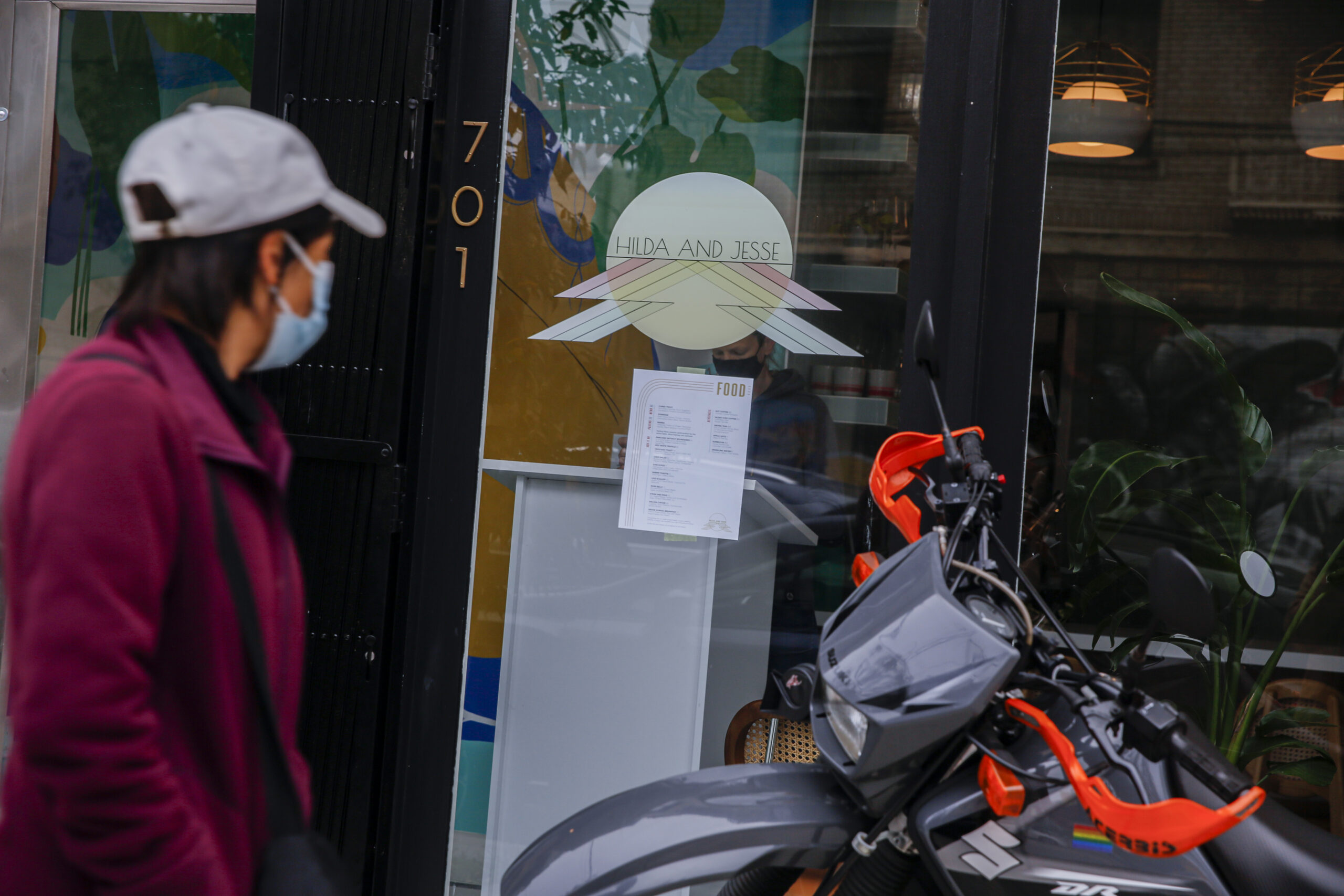We’ve all seen the sign taped to the register at the corner deli or behind the bar at the neighborhood watering hole: “We have the right to refuse service to anyone.” But exactly how far does that right extend?
The owners of Hilda and Jesse, a North Beach breakfast spot, won’t be testing their right in front of a judge, though they are certainly learning a thing or two in the court of public opinion.
The restaurant stirred controversy by refusing to serve three uniformed police officers last Friday. According to a since-deleted statement on the restaurant’s Instagram account, staff were made uncomfortable by the presence of the officers and the weapons they carried.
“We respect the San Francisco Police Department and are grateful for the work they do,” the post read. “We welcome them into the restaurant when they are off duty, out of uniform, and without their weapons.”
The backlash was swift.
It didn’t take long for the restaurant’s Yelp and Google pages to be flooded with negative reviews. On Sunday, the owners released an apology, calling the decision “a mistake” and “a teachable moment for us as we repair and continue to build bridges with the SFPD.”
Outside of this “teachable moment,” the question of whether a private business may deny service to a customer has a lot to do with the identity of the individual being shown the door.
Federal and state law prohibits discrimination based on race, color, religion, sex, gender identity or expression, sexual orientation, marital status, medical conditions, military or veteran status, national origin, ancestry, disability, gentic information and age. California’s Unruh Civil Rights Act, which applies to all businesses in California, also prohibits businesses from engaging in discrimination against those protected classes.
Michael Bracamontes, a partner at San Francisco law firm Bracamontes and Vlasak, said a private business like Hilda and Jesse is legally allowed to deny service to police officers in uniform because they are not a member of a delimited protected category. Businesses are also allowed to enforce a specific dress code, he observed. Think “no shoes, no shirt, no service.” Such a rule is permissible under federal and state law because it does not single out any protected group or characteristic.
Bracamontes said the law is quite clear in determining when a business can legally deny service to a customer and a blanket ban on police officers, for instance, doesn’t run afoul of restrictions.
“Businesses are allowed to serve whomever they choose, but they are not allowed to discriminate based on a member of a protected class,” Bracamontes said. “It seems like a risky policy to put in place for obvious reasons, but it’s not against the law.
It’s a distinction that police department leadership seems to understand, even as they criticize the decision itself.
“The San Francisco Police Department stands for safety with respect, even when it means respecting wishes that our officers and I find discouraging and personally disappointing,” SFPD Chief Bill Scott tweeted in response to the Hilda and Jesse news.
The controversy around Hilda and Jesse’s denial of service is part of a larger conversation around the presence of uniformed police officers in public spaces.
In one recent example, the Pride Alliance of the San Francisco Police Department was barred by festival organizers from participating in the city’s 2021 pride parade in uniform, in part due to an incident at the 2019 parade where police used force against protesters who blocked the parade route.
While Hilda and Jesse backtracked on their earlier decision, some local businesses have created overarching policies regarding service to police officers. Oakland’s Hasta Muerte Coffee made headlines in 2018 when they codified a policy of refusing to serve uniformed officers. The controversy led to attacks online against the business and protests outside the café’s storefront.
Still, the cooperative café has continued to limit service to uniformed officers and has a section of its website labeled No Cops that details the cooperative’s philosophy around minimizing police presence at its business and in the community writ large.
“We were trying to create a welcoming and inclusive neighborhood spot for people of the town—including those who fear police because of routine mistreatment—namely the usual targets of racial profiling, and especially formerly incarcerated, undocumented, queer, trans, and Black friends and family and neighbors. As we discussed all this, the only thing that made sense to us was to ask police not to enter or spend time at our cafe,” Hasta Muere wrote in their document.
Bracamontes said for businesses considering a similar policy, it’s important to consider the business impacts of a huge social media uproar and an adversarial relationship with law enforcement, even if the threat of litigation remains small.
“What happened in SF certainly was not a great public relations move, but there’s nothing per se illegal about it,” Bracamontes said. “It’s a pretty risky position to take. If you decide to ban all firefighters at your restaurant, you’ve got to imagine they’d be slower to respond if you end up having a fire.”
